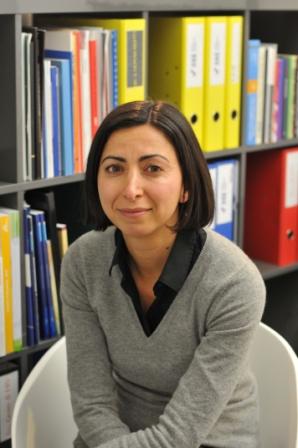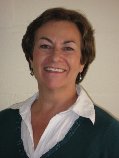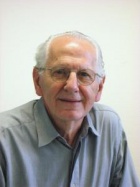Plenary Three
Trust and authority in scholarly communications in the light of the digital transition
My aim is to present a preliminary report on a project that CIBER-Research, in collaboration with the Center for Information and Communication Studies at UTK, is conducting for the Sloan Foundation. I hope to draw out those findings which are of particular interest to the EASE and ISMTE membership and which relate to the management of journals. The broad aim of the research is to examine how emerging digital behaviors are challenging and, perhaps, changing concepts of trust and authority in the scholarly world. We are studying how researchers assign and calibrate authority and trustworthiness to the scholarly sources and channels they choose to use, cite and publish in, such as journals, websites, datasets and social media. In particular, we are beginning to discover how researchers are coping in today’s crowded, dynamic, diverse and dis-intermediated digital scholarly environment, where it is ever more difficult to establish the quality, veracity, authorship and authority of information. We have some conclusions to offer on whether the growth in the use of social media for scholarly purposes affects conventional practices of establishing the authority and trustworthiness of information sources and channels, such as the practice of journal citation.
Anthony Watkinson is principal consultant for CIBER Research: research is now my main job and I have several publications resulting from six years as a visiting professor at City University London and a faculty position in the department of Information Studies at University College London. I am also a director of the Charleston conferences and Fiesole Collection retreats in one part of information world and a consultant to the Publishers Association and a director of courses for the International STM Association on the other. I do some teaching for UCL and Oxford Brookes University.
I started my career conducting research in ecclesiastical history, then subsequently spent two and a half years as a scholarly librarian. From 1971, I held senior management positions in Academic Press London, Oxford University Press, Chapman & Hall, Thomson Scientific and Professional. My last publishing post was as global dentistry publisher for Wiley-Blackwell, Oxford UK.
****
Launching the EASE Handbook
Working as an editor can be challenging. In addition to knowing the research area and the nature of scholarly publishing, editors now need a wide range of knowledge and skills including ethics, peer review, CrossRef, managing editorial boards, authorship issues, how to work with peer reviewers, how to deal with misconduct, and what bibliometrics really means. To support its members in this complex – but fascinating – environment, EASE has provided the Science Editors Handbook since 1994. This session celebrates the launch of a fully revised Second edition, comprising 57 chapters divided into sections on: editing, nomenclature; policies and processes; peer review; ethics, and publishing and promoting.
Hervé Maisonneuve is an Associate Professor in Public Health. He practiced medicine for 10 years in Lyon hospitals, and has been involved for 10 years in clinical development programmes in the pharmaceutical industry. He was Director of the assessment of the French National Agency for Accreditation and Evaluation in Health (ANDEM/ANAES) and is the editor of a website for surgeons performing laparoscopy (www.websurg.com). He teaches medical writing and has a 25 years’ experience with hospital practitioners. He has written or co-written several books in the field of writing, and has been a member of many journal editorial boards. He is the editor of www.redactionmedicale.fr.
Pippa Smart is a publishing consultant with over 25 years’ experience of working within the STM publishing industry. With extensive experience of journals publishing she now advises publishers (particularly non-commercial associations) in the development of their publishing programmes, and works with journal editors on development of their journals. She provides training in editorial strategies, copyright and ethics, and has developed courses for ALPSP, WIPO and EASE. She is the editor of the new edition of the EASE Science Editors’ Handbook and writes the monthly newsletter for publishers, the ALPSP Alert.
****
Gender policy
In early 2013, the EASE Gender Policy Committee launched an extensive international survey to probe for current practices and opinions regarding editorial gender policies in scientific journals and publishing houses. Over 700 respondents participated in the survey, representing some 600 unique journals and 100 publishing houses. The evidence that the vast majority of journals and publishing houses do not have explicit policies that foster routine gender- and sex-sensitive reporting, nor policies that address gender biases in the workforce. Interestingly, EASE members were clearly less in favour of adopting gender policies than other survey respondents. This gender policy session is designed to give voice to arguments for and against mainstreaming of editorial gender policies, followed by questions and discussions with the floor. The arguments and discussions presented in the gender policy session will inform the development of a common standard currently under works by the Gender Policy Committee.
 Dr Shirin Heidari is Executive Editor of the Journal of the International AIDS Society. In 2012, Dr Heidari was appointed member of the Council of the European Associations of Science Editors, where she also serves as the chair of the Gender Policy Committee. She continuously advocates for a gender sensitive approach to research and programme delivery. As Executive Editor, she implemented an editorial policy which strongly encourages authors to disaggregate research data by sex and provide gender analyses in submitting manuscripts. Shirin has a Doctorate degree in Clinical Virology and Experimental Oncology from Karolinska Institute in Sweden. She completed her post-doctoral training with The European Vaccine Effort against HIV/AIDS and thereafter, she continued her research at the Centre of Excellence for Infectious Medicine at the Karolinska Institute. She has 10 years of experience in research and is the author of a number of publications.
Dr Shirin Heidari is Executive Editor of the Journal of the International AIDS Society. In 2012, Dr Heidari was appointed member of the Council of the European Associations of Science Editors, where she also serves as the chair of the Gender Policy Committee. She continuously advocates for a gender sensitive approach to research and programme delivery. As Executive Editor, she implemented an editorial policy which strongly encourages authors to disaggregate research data by sex and provide gender analyses in submitting manuscripts. Shirin has a Doctorate degree in Clinical Virology and Experimental Oncology from Karolinska Institute in Sweden. She completed her post-doctoral training with The European Vaccine Effort against HIV/AIDS and thereafter, she continued her research at the Centre of Excellence for Infectious Medicine at the Karolinska Institute. She has 10 years of experience in research and is the author of a number of publications.
****
COPE Case Study Workshop
The Committee on Publication Ethics (COPE, http://publicationethics.org/) provides advice to editors and publishers on all aspects of publication ethics, along with the support and resources they need to implement good publication practice. It holds a quarterly Forum to which its members (of which there are now more than 8000, from over 80 countries) can bring challenging cases for discussion and advice. Over 16 years, COPE has built up a searchable database of almost 500 cases, covering a wide range of issues in research integrity and publication ethics, such as duplicate publication, authorship disputes and plagiarism. In this interactive workshop, a number of cases based on real-life examples brought to COPE, and covering some of the most pressing problems currently faced by editors and journals, will be discussed.
 After gaining a PhD in Cell Biology, Irene Hames moved into scientific publishing and has worked on scholarly journals and books for over 30 years, spending 20 years as the managing editor of a large, international science journal. She now works as an independent editorial consultant to the publishing, higher education and research sectors. Irene has been a member of a number of working parties on peer review, and in 2011 was the specialist advisor to the UK House of Commons Science and Technology Committee for its inquiry into peer review and the resulting report, Peer Review in Scientific Publications.She is the author of the book Peer Review and Manuscript Management in Scientific Journals: guidelines for good practice, published by Wiley-Blackwell in association with ALPSP. Irene is a Council Member, Director and Trustee of COPE (Committee on Publication Ethics), and produced the COPE Ethical Guidelines for Peer Reviewers. She also holds advisory roles with Sense About Science and the International Society of Managing and Technical Editors. In December 2011 she was made a Fellow of the Society of Biology.
After gaining a PhD in Cell Biology, Irene Hames moved into scientific publishing and has worked on scholarly journals and books for over 30 years, spending 20 years as the managing editor of a large, international science journal. She now works as an independent editorial consultant to the publishing, higher education and research sectors. Irene has been a member of a number of working parties on peer review, and in 2011 was the specialist advisor to the UK House of Commons Science and Technology Committee for its inquiry into peer review and the resulting report, Peer Review in Scientific Publications.She is the author of the book Peer Review and Manuscript Management in Scientific Journals: guidelines for good practice, published by Wiley-Blackwell in association with ALPSP. Irene is a Council Member, Director and Trustee of COPE (Committee on Publication Ethics), and produced the COPE Ethical Guidelines for Peer Reviewers. She also holds advisory roles with Sense About Science and the International Society of Managing and Technical Editors. In December 2011 she was made a Fellow of the Society of Biology.

Dr Mirjam Curno is the Managing Editor of the Journal of the International AIDS Society since April 2010 and a Board-Certified Editor in the Life Sciences. Mirjam completed her PhD at the University of Dundee, Scotland and then moved to the University of Lausanne, Switzerland as a post-doctoral research fellows to work on viral immunity.
She is a council member of the Committee on Publication Ethics and a member of EASE, including its Gender Policy Committee.
 Andre Van Steirteghem, MD PhD was co-director of the Centre for Reproductive Medicine at the Medical Campus of the Vrije Universiteit Brussel until he became emeritus Professor in 2005. He was Editor-in-Chief of Human Reproduction from 2007 – 2012, publishing several editorials on research and publication ethics.. Since 2011 he has been COPE Secretary.
Andre Van Steirteghem, MD PhD was co-director of the Centre for Reproductive Medicine at the Medical Campus of the Vrije Universiteit Brussel until he became emeritus Professor in 2005. He was Editor-in-Chief of Human Reproduction from 2007 – 2012, publishing several editorials on research and publication ethics.. Since 2011 he has been COPE Secretary.
He is currently Chair of several Commissions in Belgium (Superior Health Council, Ethics Committee of University Hospital, Federal Commission regulating human embryo research).